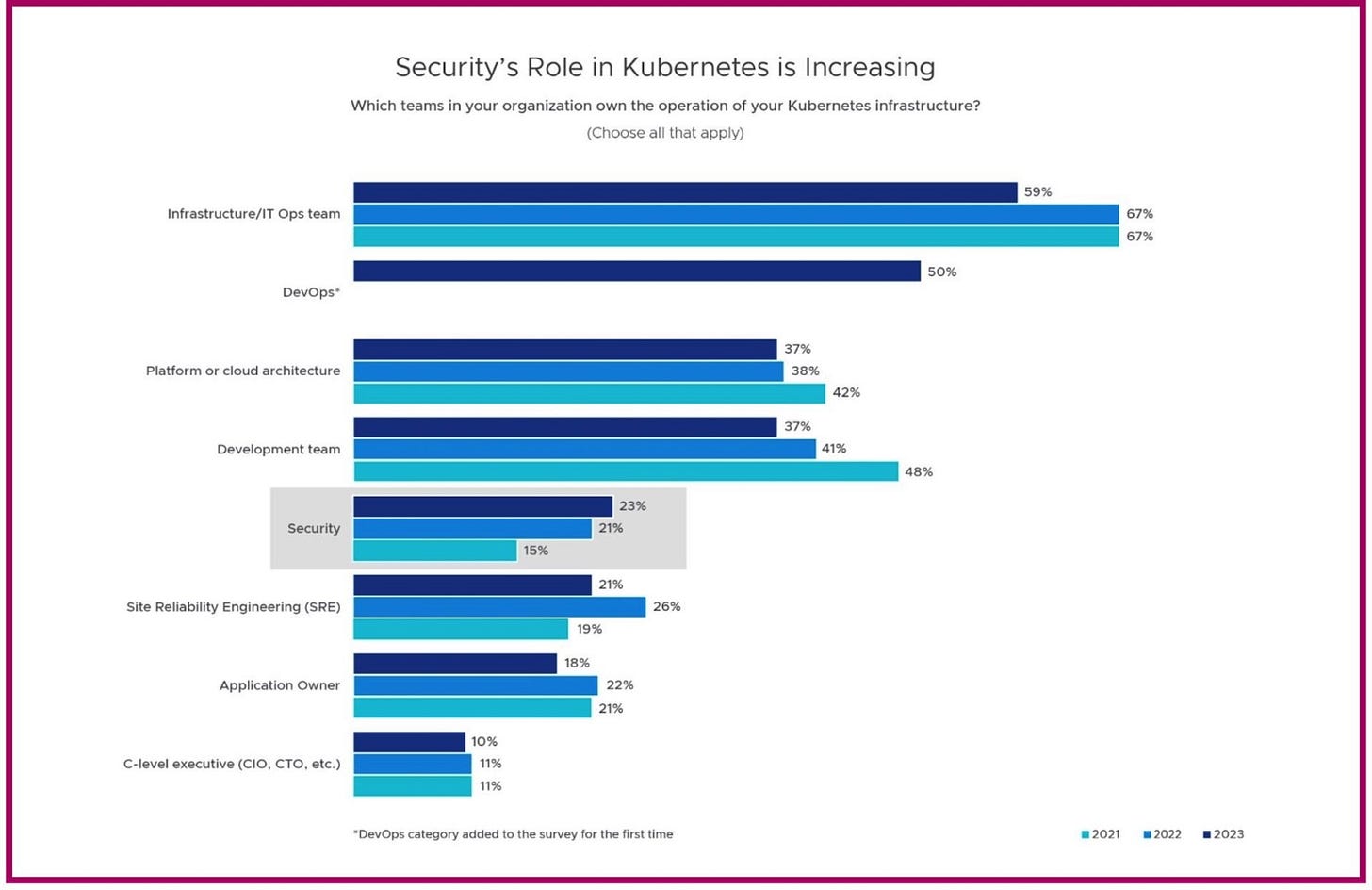That’s from a 15 minute version of my platform talk. I focused just on the seven tips to get your platform group started and scale it. I’m recording this for a conference, but I think I’ll need to record it again - which means this version is a bonus video!
🤖 Fully dedicated to “juggling everything developers need”
ChatGPT4 did a pretty good job converting the transcript for that little video into a “blog article.” Here’s the unedited text:
You probably know what a platform is, right? But just in case, let's break it down a bit. Nowadays, a platform refers to the collection of middleware services, configurations, monitoring, and packaging for the software you're running. I'd even go as far as to call it a developer or application platform. But let's just stick with "platform" for simplicity's sake.
Take a closer look at the two examples of platforms I mentioned earlier, and you'll notice that there's not a lot of detail when it comes to the infrastructure layer or the container-as-a-service layer. There's some naming and pointing to it, but that's about it. And you know what? I think this is something that isn't really discussed or proven out in the platform world at the moment.
When you're focusing on putting a platform in place, you're probably not talking about managing the infrastructure. Based on my experience over the years, I'd also say you're not talking about managing container orchestration, which nowadays largely means Kubernetes. You might use it or run on top of it, but it's likely managed and built by someone else.
Platform teams already have a lot on their plates. They're juggling everything developers need, doing all the actual processes and work (which we'll dive into a bit later), and then there's managing and worrying about the underlying infrastructure. That's a lot, right? So, the lesson here is to figure out what the roles and responsibilities are for the platform team that you have.
My suggestion? You'll probably find that the stack is going to be pretty similar, almost no matter what you have. Why? Because it's not really differentiating. Your platform is essential, but it's not something unique or groundbreaking. "Commodity" might be the wrong word, but it's nothing special.
Don't get me wrong, it's crucial to choose the right platform. Otherwise, you'll have nothing special. But also, try to figure out if you're going to have time on your team to actually manage infrastructure. Spoiler alert: I don't think you will.
So, as you navigate the ever-evolving world of platforms and middleware, remember to strike that balance between development and infrastructure management. Focus on your team's strengths and responsibilities, and let the experts handle the nitty-gritty of infrastructure. That way, you can ensure a smoother, more efficient development process for everyone involved.
DevOpsDays Austin is back for the 11th year! You should go for two days of DevOps, cloud computing, DevSecOps, and more on May 4th to 5th, 2023, in Austin, Texas. Learn more at https://devopsdays.org/austin, the schedule is live!
Sadly, I can’t go this year which is a real bummer. It’s probably the conference that ranks highest in the “I should go for my work” and “I want to go personally” 2x2 matrix. But you can go! Also, if you’ve been laid off recently or are a student, you can get 50% off the tickets, making it just $125, plus paying for parking or bus fare. I think you can park your bike for free, but don’t hold me to that.
Survey Shows Companies Moving away from DIY Kubernetes
Related to the video above, I wrote a short preview piece on our upcoming State of Kubernetes Survey. That’s due to be released next week, as you can guess, with KubeCon coming up.
I took a look at a couple of the results and concluded that:
Companies are moving away from building and managing their own, “DIY” kubernetes.
Developers are moving further away from owning and managing kubernetes.
I’m working on three little videos and more analysis of the survey which will come out over the next month or so.
And, don’t worry: when the survey is published you’ll read about it here for sure.
In the meantime, check out the preview over on The New Stack.
The Five Minute Slide Trap
When you’re presenting, you’ll sometimes get stuck for too long on your first slides. These are often the context slides, setting up definitions, the problem being solved, even the benefits that’ll be achieved.
This happens to me all the time, I’ll have 30 minutes to talk and use five (or more!) minutes on just one slide out of 20. I’ll get bogged down a lot because I’m so eager to talk about the rest of the presentation, that I start to do exactly that instead of following the narrative I’ve setup. The worst version of this is when I spend too long on the cover slide. I think I’m giving a quick summary of what I’m going to talk about, but I’m suddenly just giving the whole presentation. I’ve trained myself to not really say much for the cover slide. Hopefully, soon I won’t even use the cover.
I’ve slowly learned to force myself to speed through those first slides. It helps set my pace for the rest of them, moving quickly. Also, of course, I’m aware that I get bogged down on the first slide, so I craft up the deck to avoid that. Often, I’ll remove two or three slides from the first part of my presentations - they’re just too much “table setting.”

Wastebook
I probably find most self help, business, and DevOps/digital transformation books boring at this point because of the unspoken point is the same thing over and over: yes, but, actually follow this advice. Actually become a learning organization, measure and adapt to what you find. Actually change.
The other day I saw an older man, tweed sports jacket driving down a Netherlands highway in an early 90’s Cadillac STS. I looked over, and he had a huge, fat cigar with the label still on clamped in his mouth like Colonel Hannibal, a smile of the same, aviators blazing. I like to imagine that he was slapping the headliner to his music as he drove out of view. I think that’s when things finally started turning around since too long ago to remember.
“He said it was like ‘rain on fire.’” Here.
“World Famous Toilet Bowl.” Here.
Relevant to your interests
The “Sell to Business” or “Sell to IT” Debate Is For a Bygone Era - Centralized IT results in better, shorter purchasing cycles, survey says.
Plan Now For Major Changes To Oracle Java Licensing Costs - That seems annoying for organizations that use Java: “SE Universal pricing is based on company headcount…. [T]he new metric includes all employees who support business operations. A company of 1,000 employees with 40 to 50 SE Universal users must now pay license for 1,000 users, not 40 to 50.”
Gartner Says Worldwide PC Shipments Declined 30% in First Quarter of 2023 - PC shipments down 30% q/q. Because of those durned macroheadwindsuncertainteeezies. Vendor ranking: Lenovo, HP, Dell, Apple, ASUS, Acer.
IaaS Pricing Patterns and Trends 2022 - Pricing for basic cloud stuff is pretty much the same across providers, they differentiate on more specialized features and are starting to play with network costs. // “The most important takeaway at this point is that standard base infrastructure is reaching a commodity status. While pricing of these instances is still important, it is no longer the primary point of competition for most cloud providers.”
🤖 The robots are coming for your job - or are they? - The threat of automation may be overestimated, as technological advancements could lead to job transformation rather than job elimination.
🤖 How ChatGPT and AI are changing the future of work - AI technologies like ChatGPT are poised to change the nature of work across various industries, potentially automating repetitive tasks and improving productivity.
🤖 The revolution will not be brought to you by ChatGPT - Despite predictions, AI technologies like ChatGPT might not lead to massive job displacement, but rather change the nature of work in various fields.

Two KubeCon Evening Events
KubeCon EU is next week. It should be busy in a good way. If I were a professional, I’d have made productive plans with people to meet and record things. But, each time I do that, other things come up. Or, I end up having free time, which is a benefit itself. Anyhow, if you’re there next week, we should say hi to each other. I’m presenting at the VMware booth theater five times as I mentioned a few episodes ago: come see my talks!
This is the best list of “parties” and other (mostly) evening events around the conference I’ve found. The point of these things is to meet people and get free food and drink, so you should go to them! I’m planning on going to ITQ’s vBeers get together on Tuesday night. The ITQ people are Dutch, so you know they won’t pick a crap place. The place they’re hosting it looks really comfy, and it’s right in the center which means you can get a good look at that part of Amsterdam and that it’s a really quick metro ride from the conference center: like seven minutes!
Dell and Canonical are having one that same night, so I’ll have to try to get to both of them so I can see my old pal Barton George. It’s also at a good location, and I’ve actually been there before!
Logoff
I left the Hermitage museum off my list of museums in Amsterdam yesterday. I’ve only been there a few times: it’s totally fine and good with some good works. It’s a beautiful building as well with some good antique chairs. In addition to the older, traditional art stuff, I really like the Outsider Art Gallery they and exhibits they have their, some past ones above and below.










Share this post